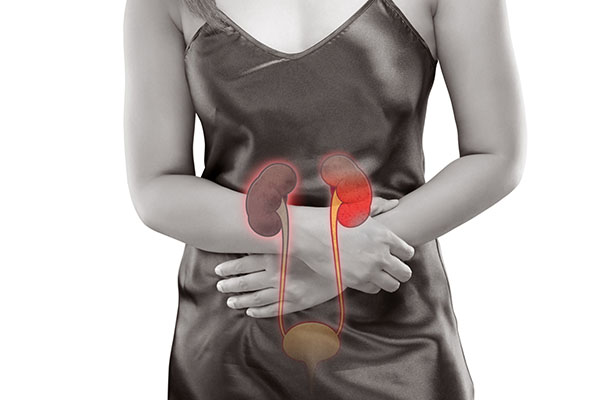What is chronic kidney disease
As a skilled Nephrologist, Dr Ramsunder is skilled in treating patients with chronic kidney disease.
Chronic kidney disease is the gradual loss of normal kidney function. Normal kidneys filter excess fluids and waste from the blood, which is then excreted into your urine. When chronic kidney disease develops into an advanced stage, dangerous amounts of waste, fluid, and electrolytes can build up in your body.
The treatment for chronic kidney disease is focused on slowing the progression of kidney damage, by managing the underlying cause. Chronic kidney disease can advance to end-stage kidney failure, which is fatal without dialysis or a kidney transplant.


Symptoms of chronic kidney disease
In the early stages of kidney disease, some people have few symptoms or signs. Chronic kidney disease may not become evident until your kidney function is significantly impaired.
The general symptoms and signs of kidney disease may include:
- Nausea and/or vomiting
- Insomnia
- Loss of appetite
- Decreased mental sharpness
- Muscle twitches and cramps
- Swelling of feet and ankles
- Changes in how much you urinate
- Shortness of breath
- Chest pain
- High blood pressure
Diagnosis
As a first step towards diagnosing chronic kidney disease, Dr Ramsunder will discuss your personal and family history with you.
Among other things, he may ask questions about whether you've been diagnosed with high blood pressure, or if you've taken a medication that might affect kidney function.
He will also ask if you've noticed changes in your urinary habits, and whether you have any family members who have kidney disease.
Next, he will perform a physical exam, checking for signs of problems with your blood vessels or heart, and conduct a neurological examination.
To diagnose kidney disease,Dr Ramsunder may order the following tests and procedures:
- Blood tests
- Urine tests
- Imaging tests
- A biopsy of the kidney
Treatment
Currently, there is no cure for chronic kidney disease. However, some therapies can help control the symptoms and sign, slow the progression of the disease and reduce the risk of complications.
People with chronic kidney disease may need to take many medications. These medications can help:
- Treat Anaemia
- Treat Phosphate imbalances
- Treat High blood pressure
- Treat itchy skin
End-stage treatments
If the patient's kidneys can't keep up with fluid and waste clearance on their own and they develop complete or near-complete kidney failure, then it has reached end-stage kidney disease. At that point, the patient will need dialysis or a kidney transplant.
- Dialysis. Dialysis artificially removes extra fluid and waste products and from the blood when the kidneys can no longer do this. In hemodialysis, a machine filters excess fluids and waste from the blood. In peritoneal dialysis, a catheter (thin tube) is inserted into the abdomen and fills the abdominal cavity with a dialysis solution that absorbs excess fluids and waste. After some time, the dialysis solution drains from your body, carrying the waste and fluids with it.
- Kidney transplant. A kidney transplant involves surgically placing a healthy kidney from a donor into the body. Transplanted kidneys can come fromliving or deceased donors. Patients will need to take medications for the rest of their life to keep their body from rejecting the new organ.
Do you want to find out more, or do you have any questions about what to expect on the day of the appointment?
Give us callRequest Appointment
Please contact our practice at 021 391 9958 if you have any questions or if you would like to request a consultation, or fill out the contact form below.

Contact Dr Nikash Ramsunder to schedule an appointment
GIVE US A CALL: 021-391-9958Leave a message
